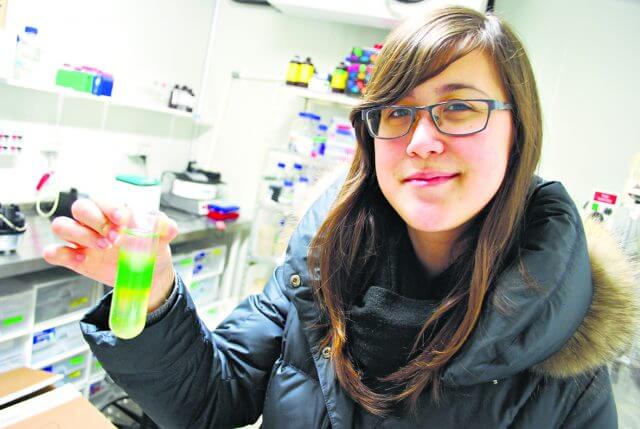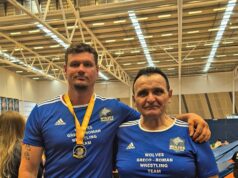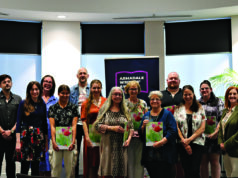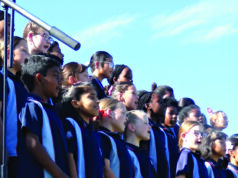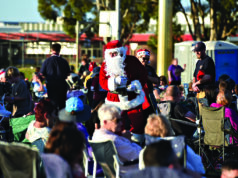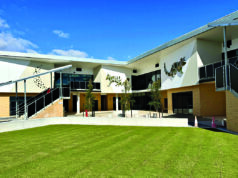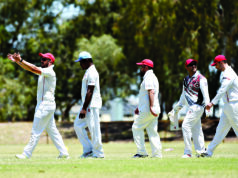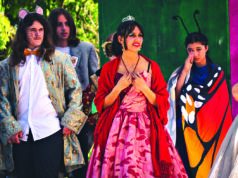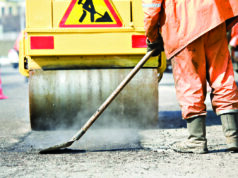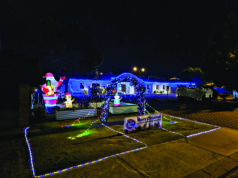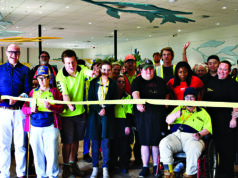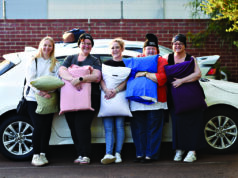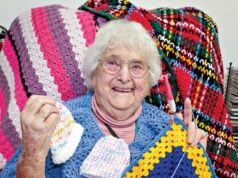Thornlie resident and PhD student Sandra Kerbler will brave the coldest place on earth after being selected to join a three-week scientific expedition to Antarctica.
Homeward Bound is an Australian initiative designed to build a global collaboration of female scientists while empowering them to redress gender imbalances in the scientific field.
Ms Kerbler, who is researching how plants can become more resistant to the cold, was one of 78 women from around the world chosen to take part in the expedition.
“I’m trying to understand how plants perceive temperature, which is important because in Australia we can go from 10 degrees Celsius in the morning to 40 during the day so I want to find out how a plant can sense those temperatures and adjust itself to cope with those traumatic changes,” she said.
“This is particularly important with climate change because even though the world is heating up and temperatures are generally getting hotter there are still places that experience extreme cold so you have huge cold snaps across America.
“Even in Western Australia we can get cold chills that could wipe out a whole crop of wheat.
“If we can understand how plants can become more resistant to that then in the future we could have wheat plants growing where they couldn’t before.”
Ms Kerbler said being able to grow strong crops would become more possible in the future because the world’s population was expected to reach nine billion by 2050, making the ability to feed everyone one of mankind’s biggest challenges.
She said she was humbled to have been chosen to take part in the expedition and looked forward to representing female scientists.
“For women in science it can be particularly hard to climb up the ranks so it’s all about bringing awareness to that,” she said.
“Being an aspiring scientist myself I hope to get to those positions some day and I want to show my peers that young women can achieve something like this.”
She said while she never anticipated researching in Antarctica she was already preparing for the harsh conditions.

“I hadn’t really thought about it before because to me Antarctica is one of those places that you always wished you could go to but you don’t think it’s really possible, it feels like going to the moon,” she said.
“Fortunately a lot of my work involves doing experiments in cold rooms so I’m kind of already standing in a cold room for five hours a day, which is a good start but I definitely need to get my hands on some good Antarctic gear.”
Ms Kerbler was also busy raising money to help her fund the $25,000 trip.
She said the University of Western Australia and the Australian Research Council Centre of Excellence in Plant Energy Biology, where she works, had helped fund part of the costs but she had also started a crowd funding campaign.
The expedition will depart for Antarctica from Argentina in December.
Throughout the voyage a team of globally recognised experts, including primatologist Dr Jane Goodall, will share valuable insights to participants via video.
A team of leading Australian documentary makers will capture stories before, during and after the Antarctic voyage to form part of a film that will explore the role of women in the world and challenge audiences to think about the role of women as leaders.
To donate to Ms Kerbler’s crowd funding campaign visit chuffed.org/fundraiser/homeward-bound-empowering-women-for-a-more-sustainable-future479.
For more information about the expedition visit homewardboundprojects.com.au.


